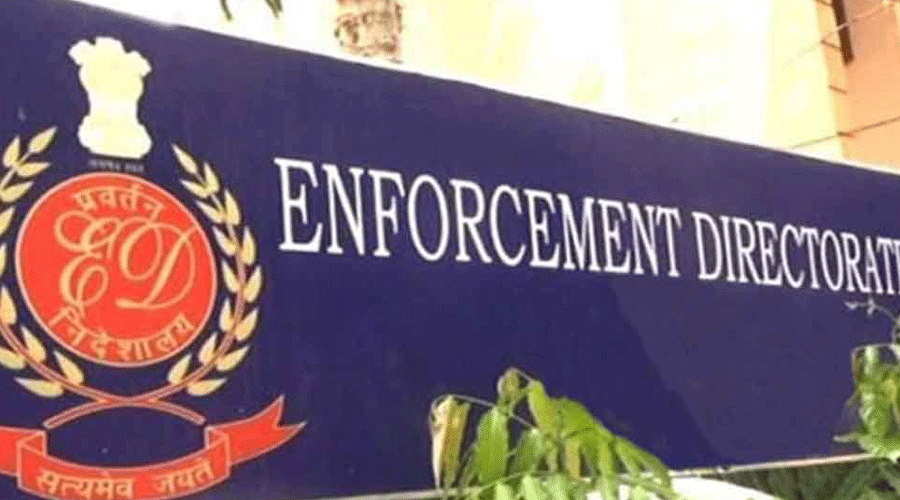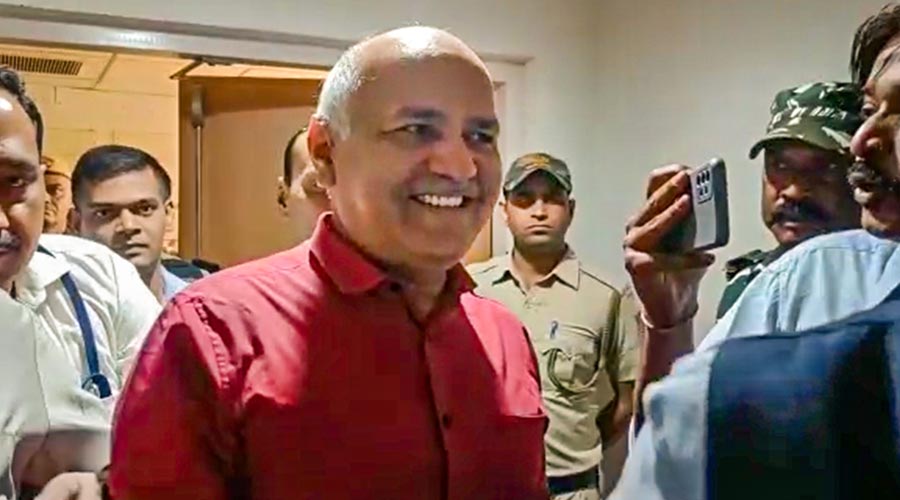The Enforcement Directorate is faced with a problem: where to lodge any new VIP accused if it takes one into custody anytime soon. “We are in a fix as all the four lockups (in the agency’s two-storey headquarters here) are occupied,” an agency official told The Telegraph.
“We don’t know where we would keep a new guest if the agency makes further arrests in any of the high-profile cases it is probing.”
The current occupants of the four lockups are former Delhi deputy chief minister Manish Sisodia, Hyderabad businessman Arun Ramchandra Pillai, Trinamul Congress politician Anubrata Mondal, and Anubrata’s alleged associate Manish Kothari, a chartered accountant.
The agency has been questioning K. Kavitha, Bharat Rashtra Samithi MP and daughter of Telangana chief minister K. Chandrasekhar Rao, in the same case in which Sisodia and Pillai have been arrested. Questioned on March 11, Kavitha failed to appear before the agency on March 16 and has been summoned again for interrogation on March 20.
Till last year, the ED had three offices in Delhi — in Khan Market, Jamnagar and the neighbourhood of the Ramlila Grounds — none of which had lockups. Those arrested were lodged in crowded and filthy cells at nearby police stations. But since shifting to Vidyut Lane near Janpath in 2022, the agency has been lodging VIP accused in the four 16ftx16ft lockups in its new headquarters that are clean and have an attached toilet each. The occupants are provided with a pair of blankets to sleep on the floor.
Each of the four current occupants of the lockups is interrogated in three two-hour sessions daily — in the morning, afternoon and evening, the ED official said. “They are served with food of their preference, either prepared in the office kitchen or brought from outside. Our VIP guests sometimes request us to get food through Swiggy or Zomato,” he said.
He declined to reveal the menu. Another ED official said the VIP detainees “are also provided with pakodas and tea from the canteen inside the ED headquarters”. Normally the agency serves dal, roti and sabzi to people in custody.
“But when we deal with VIP accused, we provide them with food of their choice. It’s standard practice,” one of the ED officials said, denying that this amounted to discrimination. Sisodia, Anubrata and Kavitha are all Opposition politicians. Opposition parties have long been accusing the Narendra Modi government of misusing its investigative agencies, especially the ED and the CBI, to intimidate or discredit its political opponents.
Media reports have suggested that about 95 per cent of all eminent politicians who have been raided, booked, arrested or questioned by the ED since Modi came to power in 2014 were from Opposition parties. The ED had arrested Sisodia, an Aam Aadmi Party leader, last week in connection with a money-laundering probe relating to a now-scrapped excise policy of the Delhi government.
Pillai was arrested earlier this month in a case linked to the same Delhi excise policy. Sources in the ED described Pillai as an associate of Kavitha, who is being probed in the same case. The ED arrested Anubrata last November in connection with a probe into alleged cattle smuggling. He had been taken into custody by the CBI in the same case in August. On March 7 this year, the ED brought him to Delhi. Kothari was arrested this week. The ED reports to the finance ministry’s department of revenue. It was set up in 1957 to look into foreign-exchange violations but after the introduction of the Prevention of Money Laundering Act (PMLA) in 2002, it started probing financial fraud and money-laundering too.











